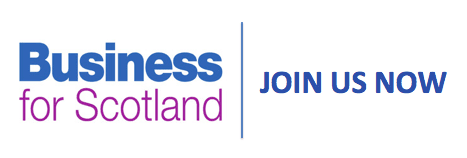Innovation and investment hub for Scottish businesses opens in London.
Scotland House, a new innovation and investment hub for businesses, has officially opened in London with more than 450 businesses registering their interest to become members in the first few weeks.
With the aim of helping ambitious Scottish companies take advantage of business opportunities in London and internationally, Scotland House will provide facilities and a place to meet customers and target new markets, secure investment and showcase products and services.
It also brings together officials from the Scottish Government, Scottish Enterprise, Highlands and Islands Enterprise and VisitScotland under one roof to provide a Team Scotland approach to supporting businesses and attracting visitors and investment to the country.
What will the general election mean for Scotland? CEO of Business for Scotland Gordon MacIntyre-Kemp comments
Theresa May doesn’t have a mandate for the hard Brexit her government is pursuing, so she is now seemingly asking for one.
This is the worst case scenario for Scotland: an emboldened London-centric majority Conservative Government will push through with a hard Brexit which will be deeply damaging to Scotland’s economy and bring more and deeper cuts to vital capital investment, costing jobs and slowing Scotland’s economic growth through its British isolationist policies.
The Prime Minister has clearly taken a contradictory stance, claiming now is not the time for a second independence referendum as the full terms of Brexit are not yet clear, however she is now calling for a general election on June 8 when we will know absolutely nothing.
The Tory’s council election campaign is entirely based on an anti-Scottish independence referendum position, and they are now positioning the general election effectively as a second referendum to claim a mandate for hard Brexit.
Once again, the Westminster government is showing political opportunism and not thinking about the economic impact.
The First Minister has said that the snap general election will strengthen the country’s democratic mandate for a second independence referendum.
World’s biggest turbine off Orkney coast creates enough power for 1,000 homes
A prototype turbine ran at full capacity for the first time last week during a test at the European Marine Energy Centre off the coast of Orkney, generating electricity capable of powering 1,000 homes.
The 500 tonne floating tidal turbine, said to be the most powerful in the world, will now be used as a basis for a commercial version which could go into operation at the end of next year.
Scotrenewables now plans to develop a lower-cost version of the floating machine, which will be rolled out on a commercial basis next year. As well as being used in Scotland, the firm is also looking at markets in France, Canada and Asia. Scotrenewables currently employs 26 staff with offices in Orkney and Edinburgh, and has been developing its power-generating technology since 2002. In 2012 it achieved a world first when it exported power to the UK grid from its 250kW floating scale model. Shareholders include DP Energy, Total and the Scottish Government via the Renewable Energy Investment Fund (REIF).
Mark Tiffney from Dynamic Core Studios Clydebank writes: Salt & Bananas – it’s all about balance.
Have you ever suddenly had a cramp in your calf, maybe when you were sleeping, and don’t know why? Salt and bananas could be the key.
Previously I discussed the work/ life/ health balance equation however, the balance equation doesn’t end there. In fact, almost everything in the realm of health and wellbeing is about balance.
You may have heard the phrase, “everything in moderation”. Personally, I’m not a fan. It is, often, used as a reason for indulging in something unhealthy. However, “everything in balance”, would be a better approach. There is little that will balance out a doughnut for example, but when it comes to naturally occurring foods and minerals, the idea of demonizing something is, in essence, a lazy nutritional approach and could be very costly.
Take salt (or sodium to be technical). Beyond table salt, which is made in a factory, salt is naturally occurring. Rock salt and sea salt are abundant across the world.
But it causes high blood pressure and heart attacks! It’s bad! You should not consume it!
Wrong!
Your body NEEDS salt to function properly.
Sodium helps you to retain water, helping with liver function, transmit electrolytes and it helps stimulate muscle contractions. So, a lack of sodium can cause cramps, particularly in the extremities (ie. calves).
It also helps digestion, reminds your body to hydrate (by stimulating thirst) and can help combat heat exhaustion or sun stroke (so particularly useful in hot weather).
That said, too much can be a bad thing. It can cause over retention of water and hyper tension.
But how much is too much? Whilst the guidelines state it should be somewhere between 2.4 & 3g per day, it’s all about balance.
The balancing mineral for sodium is potassium. So, if your sodium levels are high, an increase in potassium is advisable. Both are necessary for good health, but they also need to be in balance.
Therefore, if you feel you have over-indulged in food with a high salt content, maybe consider, the next day, focusing on having a banana and some potatoes in your diet.
Another factor is water. If you increase your intake, you could flush sodium from your system. If you are hot and sweating, you will lose some that way (and it may be encouraging you to drink more water – which is good, just remember you need to up your salt intake if you’ve been being strict with it).
It’s called a “balanced diet” for a reason.







